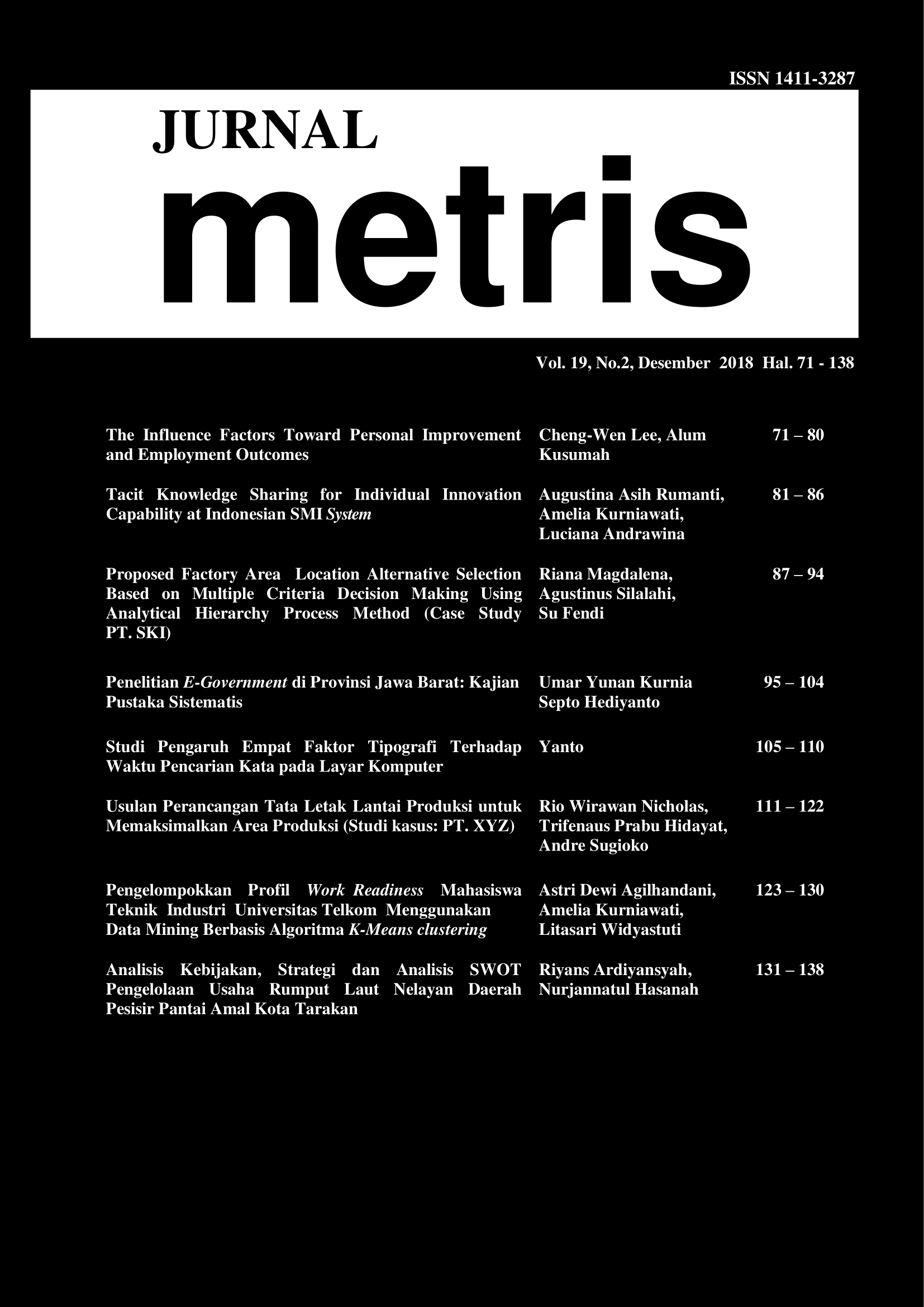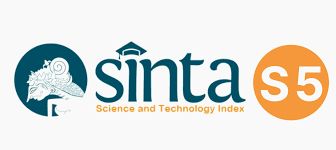Pengelompokkan Profil Work Readiness Mahasiswa Teknik Industri Universitas Telkom Menggunakan Data Mining Berbasis Algoritma K-Means Clustering
Keywords:
Work readiness, Clustering, Data mining, Algoritma k-meansAbstract
This study aims to formulate a group of student work readiness profiles. Based
on this profile, students' readiness to work will be identified. Grouping is done
using data mining based on the k-means clustering algorithm. The work
readiness profile group consists of student skills or abilities based on Critical
Thinking/Problem Solving, Oral Communications, Written Communications,
Teamwork/Collaboration, Diversity, Information Technology Application,
Leadership, Lifelong Learning/Self Direction, and Professionalism / Work
Ethics. The case study of grouping the profile of work readiness of students is
carried out in the Industrial Engineering Study Program of Telkom University
with the number of respondents 191 students in the class of 2014 who are
currently taking level IV lectures. Based on the results of grouping by dividing
into 9 clusters, it was identified that students who met the criteria as students
were ready to succeed in work in cluster 7. The number of students in cluster 7
was 50 students with good academic skills, but less active in student activities
in the field of reasoning and culture, while the work readiness tends to be very
good. The highest work readiness score for cluster 7 is in Lifelong Learning/Self
Direction and Teamwork/Collaboration capabilities. Oral Communications, and
Leadership which are the benchmarks of student readiness in a career. Further
research can be done by identifying groups of work readiness profiles for
students at various levels so that they can be used as a reference for designing
programs to improve work readiness that varies for each level.












